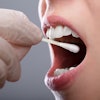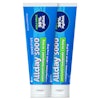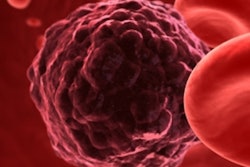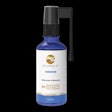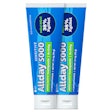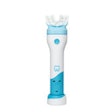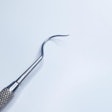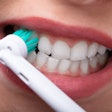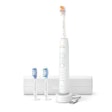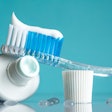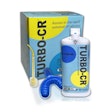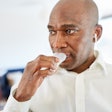
Raw honey, especially manuka honey, has unique qualities that make it an amazing medicine for the mouth, as well as the rest of the body.
Evidence shows that it can be used as toothpaste, an antibiotic, an antiviral, an antifungal, a regenerative agent, an anticancer substance, an antioxidant, a prebiotic, an anti-inflammatory, and so much more. Find out how the single-flower honey works in the mouth and the best ways to use it.
What makes manuka honey unique
 Alvin Danenberg, DDS.
Alvin Danenberg, DDS.The honey comes from the manuka tree, which is native to New Zealand and southeastern Australia. Beekeepers introduce European honeybees to areas that have a large concentration of wild-growing manuka trees during their six-week blooming period to make this type of honey. Manuka trees are grown in a relatively pollution-free environment without exposure to industrial chemicals or pesticides.
Manuka honey looks and tastes differently than other honeys. It is thicker because of high levels of specific types of proteins. Typically, it has a dark cream or dark brown color, and the flavor is more earthy than other raw honeys.
As with almost all honeys, manuka honey is roughly 80% sugars and 17% water, with the last bit being comprised of minerals, organic acids, enzymes, etc. Honey contains 4% to 5% fructo-oligosaccharides, which are excellent prebiotics to feed beneficial bacteria in the gut.
All honeys contain about 200 biologically active chemicals. These raw and unfiltered honeys are a good source of amino acids, B vitamins, zinc, potassium, iron, calcium, magnesium, and phosphorous, but manuka honey has up to four times the nutritional content of all other flower honeys. Most of the pharmacological effects of honey come from polyphenols, which are found in large concentrations in honey.
Manuka honey also has concentrations of a unique compound. It has nonperoxide bacteriostatic properties that are the result of methylglyoxal (MGO). This biologically active compound is not present to any great extent in other honeys, and it enhances wound healing and tissue regeneration by its immunomodulatory properties.
The oral health benefits
More than 100 systemic diseases and more than 500 medications have oral manifestations, with 145 commonly prescribed drugs causing dry mouth. Honey, especially manuka honey, can have beneficial effects on these oral manifestations.
Evidence shows that honey exerts antibacterial effects and prevents the development of resistant strains of bacteria, and it is effective in preventing growth of biofilm organisms, reducing the production of acids and gingivitis.
Also, randomized controlled trials indicate honey helps prevent dental caries and gingivitis following orthodontic treatment, and manuka honey and raw honey have been shown to be as effective as chlorhexidine as a mouthwash.
Evidence also shows the following beneficial uses of manuka honey:
- Manuka honey controls odor and inflammation in wounds secondary to squamous cell carcinoma of the oral cavity.
- Multiple reports indicate honey is beneficial in the treatment of radiation-induced mucositis in patients undergoing curative radiotherapy for head and neck cancer.
- Honey is helpful in treating radiation-induced xerostomia in patients undergoing curative radiotherapy for head and neck cancer.
- Honey enhances wound healing in nonhealing or recurrent wounds in the head and neck area after radiotherapy.
Practical uses for manuka honey
Trying using Manuka honey in the followig preparations:
- Toothpaste: Put about a half teaspoon of manuka honey in your mouth and spread it around all your teeth using your tongue. Then, use an electric toothbrush and brush normally.
- Wound healing agent for oral soft-tissue lesions: Swish one-quarter to a half teaspoon of honey around your mouth for a minute or so and then swallow. Use as needed.
- Chapped lip soother: Apply manuka honey to dry lips and sore corners of mouth as needed.
- Mouthwash or dry-mouth reliever: Swish one-quarter to a half teaspoon of honey in your mouth and swallow to freshen breath.
Raw honey, specifically manuka honey, is Mother Nature's best-kept secret when it comes to its oral health benefits. In this case, mother knows best.
Alvin Danenberg, DDS, has retired from the private practice of periodontics in Bluffton, SC. He continues to be on the faculty of the College of Integrative Medicine and created its integrative periodontal teaching module. He also spent two years as chief of periodontics at Charleston Air Force Base earlier in his career. His website is drdanenberg.com.
The comments and observations expressed herein do not necessarily reflect the opinions of DrBicuspid.com, nor should they be construed as an endorsement or admonishment of any particular idea, vendor, or organization.
